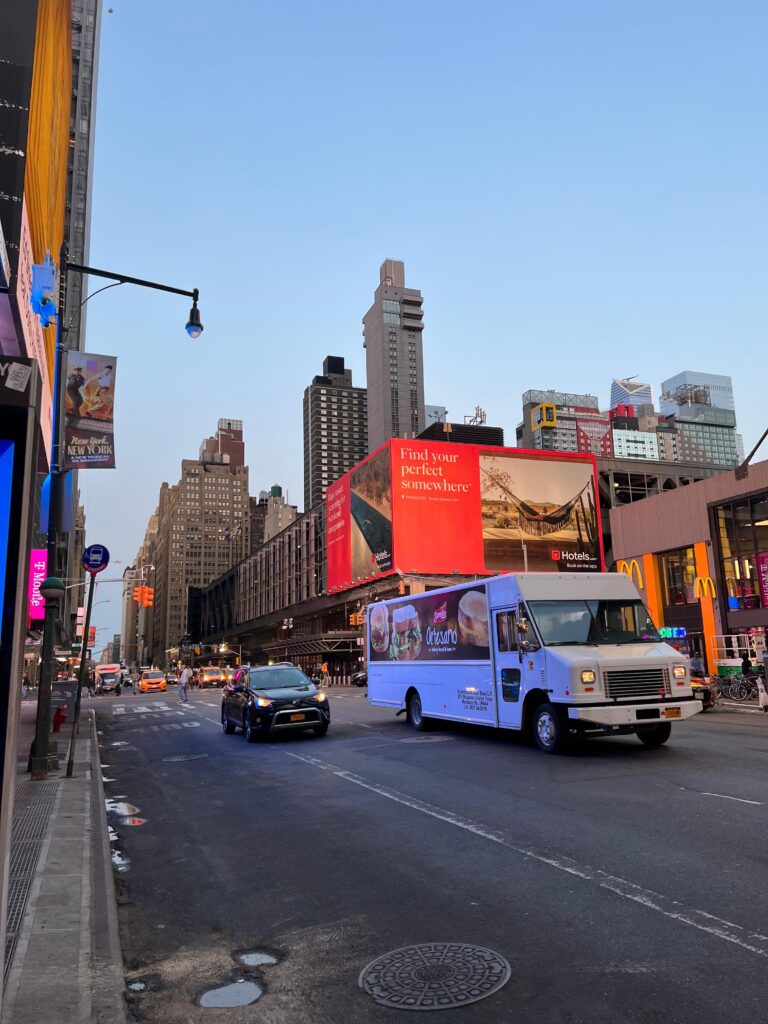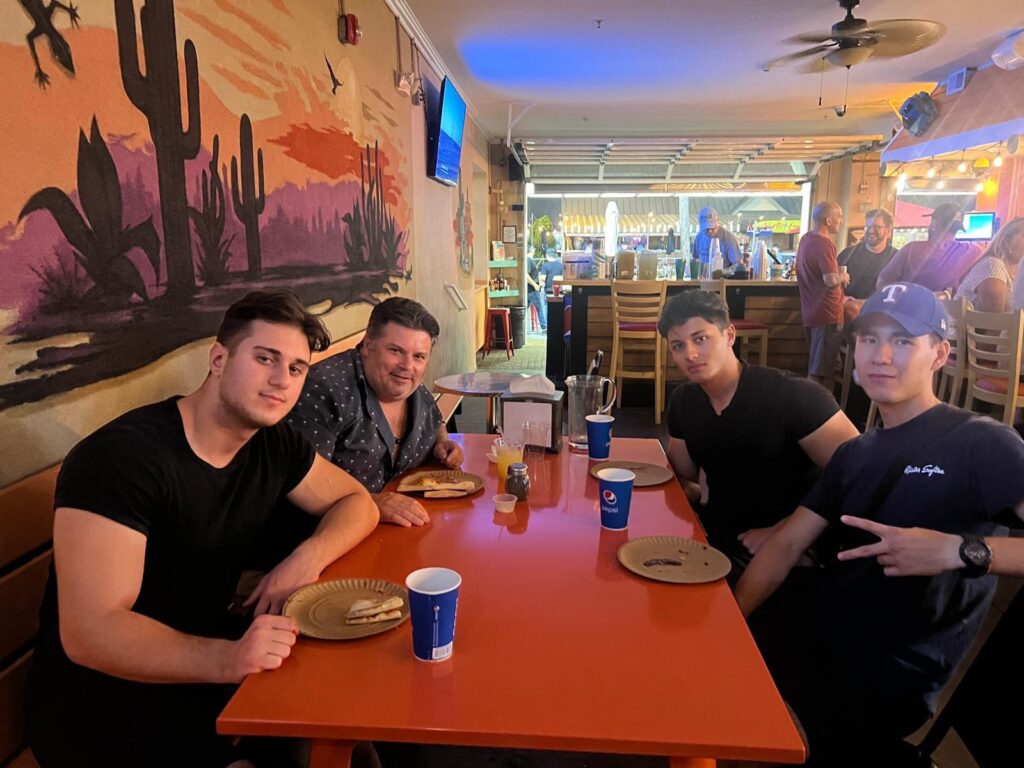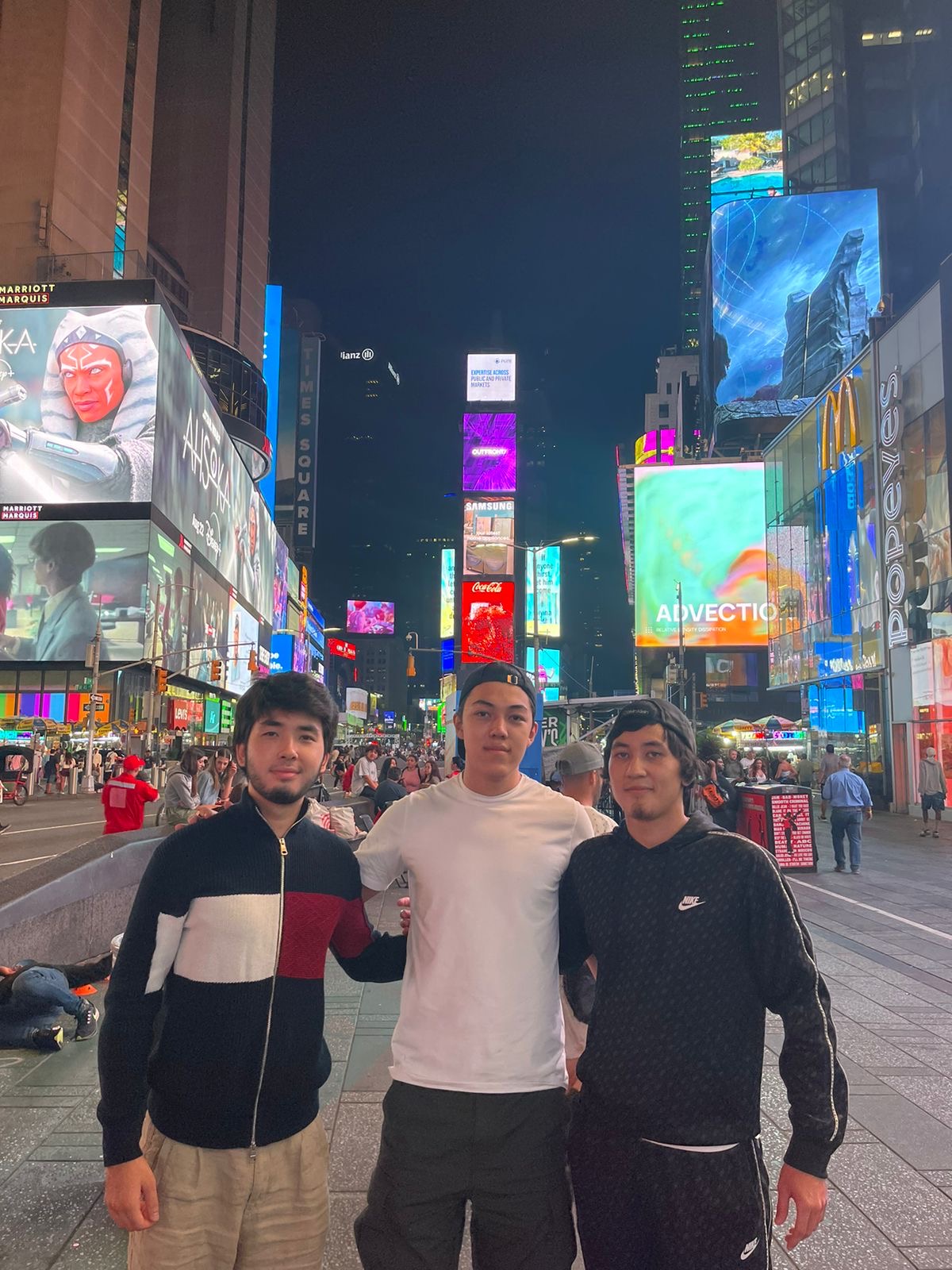Today’s university students look for adventure far and wide, immersing themselves in different cultures and gaining life experiences.
One such opportunity is the Work and Travel program, which offers students a chance to explore the United States, not just as tourists, but as part of the workforce, truly living the American way of life. The adventure of work travel is much different than typical tourism, allowing people to gain a better understanding of where they are visiting, and in many cases returning home with thousands of dollars in their pockets.
International Work and Travel programs have become popular with more than 250,000 students from around the globe to experience the United States firsthand each summer, according to workandtravelus.kz.

For many, it’s a once-in-a-lifetime opportunity to work, learn, and grow in a different environment. Last year, two KIMEP University students, Nurdaulet Talapov and Azamat Duisenali, took up this challenge.
In 2023, Talapov decided to work in America’s Garden State, Wildwood, New Jersey at an ice cream shop. He hoped to spend some time in America and learn more about its culture by working three months and then traveling for a month.
Soon after arriving, Talapov decided just working at Mister Softee wasn’t enough for him so he took on a second job working in housekeeping at a nearby hotel.
“From May 16 to Aug. 20, I lived in Wildwood, New Jersey, a resort town that became my home for three months,” Talapov said.
“The hotel job was the hardest,” he said. “It was physical labor, helping housekeepers and doing various tasks around the hotel, while at the ice cream stand, I just made and sold ice cream.”
Indeed, Talapov adopted the American tradition of over working. He said he worked 13 hours every day and that left little time for rest.
“I found the (second) job myself,” he said. “It was in the morning, and the main job was in the evening. Two jobs were hard for me.”
Despite the hard work, Talapov said he saw many beautiful places. He lived with other Kazakh students, sharing a small house with nine others.
The accommodations were cramped, and the cost of living was high—he paid $155 a week of rent.
But what really surprised him was the food.
“It was terrible,” he said. “Unnatural, tasteless, full of GMOs and chemicals. Even Doshirak seemed healthier than American food.”
Yet, amidst the challenges, there were moments of unexpected kindness that stood out.
“Once, while walking home with groceries, an old woman offered me a ride,” he said. “She helped me load my bags into her car and drove me home. Another time, I received a $100 tip from an elderly man just for bringing him clean towels to his room. Those moments made all the hardships worthwhile.”
One, perhaps unexpected lesson Talapov learned was a new appreciation for Kazakhstan.
“When I returned, I missed home food and was glad to be back with my family and friends,” he said. “It’s true what they say—visiting is good, but home is better.”
Duisenali, now 21, studying management at KIMEP, headed to Norfolk, Virginia, home to one of the world’s largest naval bases where he worked as a kitchen assistant.
Duisenali prepared salads, burgers, steaks and tacos in a busy kitchen, he said. He too picked up a second job at a hotel’s front desk checking people into their rooms.
“The logistics were tough,” he said. “It took 45 minutes to get from Portsmouth to Norfolk, involving bicycles, ferries, and a lot of waiting.”
But it wasn’t just the commute that made Duisenali summer difficult.
“(Norfolk) was really crime heavy,” he said. “My bike was stolen one night, and a friend was robbed at gunpoint.”
His friend, a fellow Kazakh student, was heading home alone in the rain after a long shift and decided to take shelter in a parking lot to wait for the storm to pass, Duisenali said. As he stood there, two men approached, asking to borrow his phone to make a call. Sensing something was off, he tried to decline, saying he didn’t have a phone.
However, the situation quickly escalated when one of the men pulled out a gun and demanded his phone. With no choice, Duisenali’s friend handed over his phone, along with its passwords. After the men left, he rushed back to their shared house, where Duisenali and the others were, he said. They immediately contacted the police, who came and took a report, but unfortunately, there was no follow-up, and the stolen phone was never recovered.
Following this robbery, Duisenali said he and his friends made a new rule.
“After that incident, our manager made a rule that we had to come back from work together, never alone,” he said.
Despite these challenges, Duisenali said he found ways to make the best of his situation. He worked in a seafood restaurant, where he made his own meals, avoiding the fast food that he found unappealing.
His living situation was better than Talapov’s. Duisenali shared a new house with five other students.
Duisenali ’s summer wasn’t all work and no play, he said. He traveled to Washington, D.C., where he attended “Sneakercon” and explored museums, and later, he went to Orlando, Florida, where he saw a Real Madrid vs. Juventus football match and visited Universal Studios.
“I had pink glasses about the USA,” he said of that optimistic view of the world. “But when I arrived, I realized it’s not like in the movies.”
Duisenali connected with people at work and fellow students. He learned to navigate the complexities of life in a foreign country, managing his finances, working long hours, and dealing with the unexpected.
“I became more responsible,” he said. “I lived on my own, cooked for myself, paid taxes, and worked hard. It’s a step towards becoming more independent.”
While the work and travel program offers a chance for adventure and cultural exchange, the financial side can be a bit challenging for many students.
Before setting foot in the U.S., participants like Talapov and Duisenali had to cover significant upfront costs.

The program fee, visa fees, and plane tickets totaled about $3,000. Once in the U.S., both had to juggle multiple jobs to cover their living expenses and recover their initial costs.
Talapov, for example, earned around $13 per hour plus tips at his first job as an ice cream vendor and $15 per hour plus tips at his second job at a hotel, making about $200 a day.
A large part of his earnings went to expenses like $155 a week for housing. Duisenali earned $16 per hour as a kitchen assistant and $12 per hour on the night shift at a hotel, bringing in around $800 a week when working both jobs.
However, after paying 11-12% in state taxes and other living costs, like $175 per week for rent, his savings weren’t as high as he hoped.
Taxes reduced both of their income significantly, and they had to navigate the process of filing for a tax refund, which can be complicated. While both managed to make a decent amount—Talapov saved about $11,000 and Duisenali about $12,000—the experience underscored the importance of budgeting wisely and having clear expectations about the costs involved in these types of programs.
“Don’t expect anything, be more realistic,” Duisenali said. “This is a step to become more responsible to yourself.”

